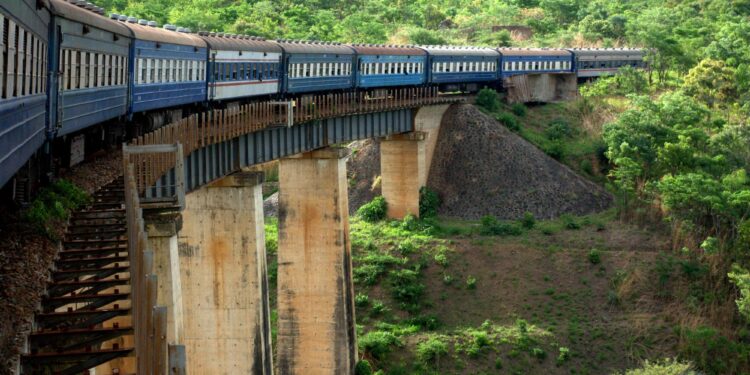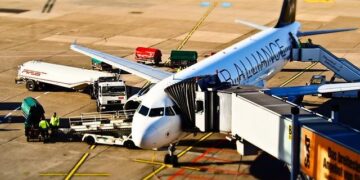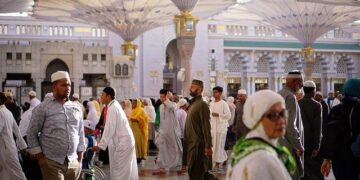The Tanzania-Zambia Railway: A Cold War Milestone in African Unity and Development
Nestled in the heart of Southern Africa, the Tanzania-Zambia Railway (TAZARA) stands as a monumental infrastructure achievement that reshaped regional connectivity while embodying the geopolitical struggles of the Cold War period. Launched in the mid-1970s, this ambitious railway project was more than just a transportation link—it was a strategic response to colonial legacies and superpower rivalries. As newly independent African nations sought to assert their sovereignty, TAZARA emerged as both an economic lifeline and a symbol of political defiance. This article explores TAZARA’s construction journey, its critical role amid Cold War tensions, and its lasting influence on modern Africa’s socio-economic landscape.
Cold War Context and Geopolitical Strategies Behind TAZARA
The establishment of TAZARA transcended typical infrastructure development; it was deeply embedded within the geopolitical chessboard of the Cold War era. At a time when African countries were breaking free from colonial domination, this railway became an emblematic project representing resistance against neocolonial control. Primarily financed by China—a rising global power eager to expand its influence—TAZARA provided landlocked Zambia with direct access to international markets via Tanzania’s Dar es Salaam port. This route bypassed apartheid South Africa and Rhodesia (now Zimbabwe), countries aligned with Western interests that imposed economic blockades.
By challenging Western dominance over trade corridors in Southern Africa, TAZARA illustrated China’s strategic entry into African affairs beyond Soviet-American rivalry zones. The railway thus signified an alternative alliance framework for emerging nations seeking partnerships outside traditional superpower spheres.
Beyond geopolitics, TAZARA fostered unprecedented regional collaboration by linking Tanzania’s coastal economy with Zambia’s mineral-rich interior—facilitating commerce while promoting self-reliance among post-colonial states. Its multifaceted significance can be summarized as follows:
- Economic Liberation: Granting Zambia autonomous export routes for copper without dependence on hostile neighbors.
- Political Cohesion: Cementing solidarity among newly sovereign states confronting shared external pressures.
- Shifting Global Alliances: Reflecting evolving power dynamics where non-Western actors gained footholds in Africa.
In essence, TAZARA not only altered trade patterns but also embodied ideological contestations shaping Southern Africa’s political trajectory during one of history’s most polarized eras.
Transformative Economic Effects on Regional Growth and Liberation Efforts
TAZARA played an instrumental role in redefining southern Africa’s economic environment throughout its formative years amid Cold War complexities. More than just steel tracks connecting two points, it served as a vital artery enabling Zambia—the world’s second-largest copper producer—to circumvent politically hostile territories for exporting minerals essential to its economy.
Key economic advantages included:
- Expanded Market Access: Streamlined export-import processes through Dar es Salaam enhanced Zambia’s competitiveness globally.
- Sustainable Employment: Thousands found jobs during construction phases; ongoing operations continue supporting local livelihoods.
- Regional Trade Synergies: Encouraged cross-border agreements fostering broader East-Southern African commercial integration.[1]
Beyond economics, TAZARA became intertwined with liberation movements across neighboring countries still under colonial or minority rule regimes such as Zimbabwe (then Rhodesia), Namibia under South African administration, and apartheid-era South Africa itself. By providing logistical support free from Western interference:
- Abolitionist Momentum Strengthened: The railway facilitated movement for activists and resources aiding anti-colonial campaigns.
- Cultural Pride Amplified: Completion celebrations underscored indigenous engineering prowess amidst global skepticism about African capabilities.
- Ideological Exchange Hub: Socialist principles promoted through Chinese involvement inspired political discourse fueling independence aspirations region-wide.
Thus, beyond tangible goods transported along its rails lay intangible currents propelling social transformation across southern Africa.
Insights from TAZARA for Modern Infrastructure Development Amid Political Complexities
Historically speaking, large-scale infrastructure projects often mirror prevailing political climates—TAZARA exemplifies how infrastructural ambitions intersect with ideological contests at national and international levels. While designed primarily to boost trade efficiency between Tanzania and Zambia during turbulent times marked by competing superpowers’ agendas—the project also offers enduring lessons relevant today:
- The Power of Regional Unity: African nations collaborating can strengthen negotiation leverage against external pressures.[2]
- Sovereignty Through Infrastructure: Diversifying transport routes enhances national autonomy amid shifting geopolitical landscapes.
- < b >Transparent Funding Models: Multiple financial contributors reduce dependency risks linked to single donors or governments .
Advantages Challenges Improved regional connectivity facilitating commerce Reliance on foreign expertise for upkeep & repairs Enhanced inter-country cooperation fostering peace & development Political instability occasionally disrupting operations & maintenance schedules Creation of employment opportunities boosting local economies Unequal distribution of benefits leading to socio-economic disparities between partner states The dual nature inherent in politically charged projects like TAZARA underscores both their transformative potential—and vulnerabilities tied to external dependencies or internal governance challenges over time.
Reflecting on the Lasting Impact of TAZARA in Africa’s Progress Journey
Looking back at nearly five decades since completion reveals that the Tanzania-Zambia Railway remains more than historical relic—it is a living testament reflecting how infrastructure can serve multiple roles simultaneously: economic enabler; symbol against oppression; catalyst for regional unity; arena where global powers projected influence onto emerging continents.
Today—with increasing emphasis on pan-African initiatives such as AfCFTA (African Continental Free Trade Area) aiming at deeper integration—the lessons embedded within TAZARA resonate strongly:
– Infrastructure must be conceived not only technically but geopolitically aware;
– Collaborative ownership models enhance sustainability;
– Balancing foreign assistance alongside domestic capacity building ensures resilience;
– And finally—transport corridors are arteries pumping life into continental ambitions toward self-reliable growth amidst complex international relations landscapes.
Ultimately,Tanzania-Zambia Railway encapsulates how post-colonial aspirations intertwined tightly with global ideological battles shaped modern Southern African realities—and continues inspiring contemporary efforts toward unity-driven development.
—
References:
1) New direct shipping route booster linking China-Europe trade – Official website State Council Information Office [https://capital-cities.info/…]
2) Cyril Ramaphosa: From Donald Trump criticism towards praise – Capital Cities News [https://capital-cities.info/…]














